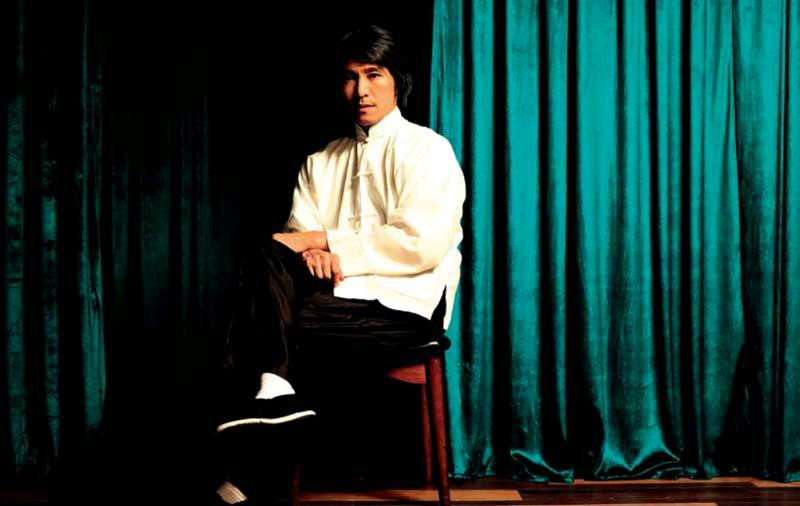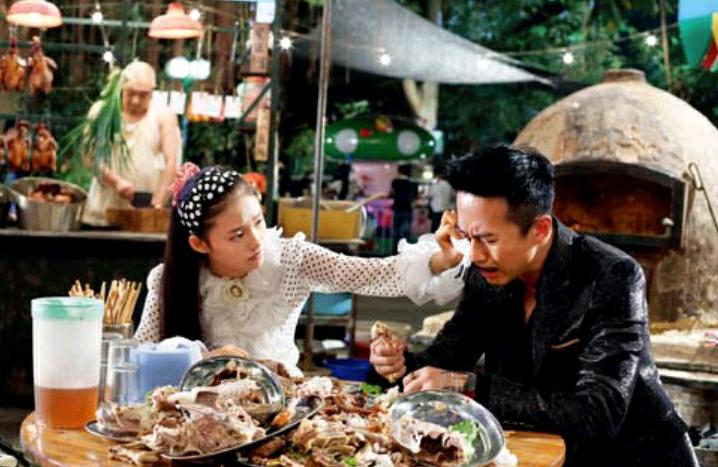Stephen Chow:A Film Tradesman
2016-05-28byWeiYiping
by+Wei+Yiping
Already one of the most popular comedic actors across all of China, Stephen Chow Sing-Chi cemented his place as one of the greatest working Chinese film figures when his latest science fiction fantasy The Mermaid became a hit from the moment it was released on February 8, the first day of the Chinese Year of the Monkey. In just 25 days, it grossed nearly US$500 million, becoming the first Chinese film to break the 3 billion yuan mark ($463 million) in box office sales.
Born in 1962, Chow has been a major player in Chinese film circles for years. In 2003, Chow was featured as an “Asian Hero” by Time magazine and graced the cover of that special issue. His 2005 film Kung Fu Hustle was ranked as one of the top ten of the year by Time. His film preceding The Mermaid was 2013s Journey to the West: Conquering the Demons, which set the box office record for Chinese language films at the time with $218 million.
Although some critics slammed the plot of The Mermaid as too conventional yet absurd, such traits werent problems for Chows fans. Their top complaint was that they had to wait so long for the new film.“If I finish a script in just two months, I would be worried,” gasps Chow. “And even I like the script, I fear the audience wont.”Box office success has already freed Chow from worries about studio executives, allowing him to produce more distinctive movies that express his own creativity and individuality.
Golden Age
In 1988, Chow broke into the movie industry with a supporting role in the Hong Kong film Final Justice. Quickly, his unique “nonsense comedy” known as moleitau won him massive attention. Moleitau is a Cantonese phrase referring to broad and low-brow humor with biting satire and little logic.
The 80s were the golden age of Hong Kong movies, and an annual production volume topped 300. Chow seized the opportunity. In 1989, he won Best Supporting Actor at the Taiwan Academy Awards for Final Justice, but even that award didnt launch him to the A-list.
Chow scored his first starring role in 1990 in Winner Takes All and began excelling in the comedies. Gambling movies were nothing new, but Chow brought a new style to the genre. He added tongue-in-cheek moments when portraying traditionally serious heroes. Hong Kong director and screenwriter Stanley Kwan believes that the defining trait of Chows style is its lack of logic. After the Joint Declaration of the Government of the United Kingdom of Great Britain and Northern Ireland and the Government of the Peoples Republic of China on the Question of Hong Kong was signed in 1984, Hong Kongs return to the motherland became the top social issue in Hong Kong. Many worried that their post-1997 lives would undergo dramatic change. “The ridiculous banter in Chows film is fitting for the Hong Kong mentality at that time,” remarks Kwan.“They just lived for today and refused to think about tomorrow.”
Chows watershed year arrived in 1992. That year, he appeared in seven movies on the big screens, five of which were the highest-grossing movies in Hong Kong. However, he couldnt keep up such a pace forever. In 1994, Chow ventured to the Chinese mainland to film A Chinese Odyssey, a two-part fantasy-comedy. Very loosely based on the Chinese classic Journey to the West, the film made “love” its core subject. Not well received during its release, the film still found a cult following when the internet emerged a few years later. Many millennials now consider A Chinese Odyssey the modern classic romance.
For Chow, A Chinese Odyssey taught him important lessons. It was his first attempt at producing, and he invested his own money through his own film company. Some critics dubbed A Chinese Odyssey a groundbreaking work. Love became an invisible thread in almost every one of his productions after this film, discreetly tucked beneath various veils such as soccer, kung fu, and fantasy worlds. Chows films have developed a distinct flair.
A Boy and His Kung Fu Dreams
Actually, even before A Chinese Odyssey, Chow was eager to transition his career. “Fans liked me as a funny actor, but that wasnt enough,” he wrote in a 1992 diary. “If I always played the same type and never evolved, I would fall behind the times very quickly. I want to try different roles and I want my fans to know that I am more than just funny.”
As Chows goals evolved, he found it harder to get along with his crew. He often fell behind schedule and changed the scripts on location, souring his reputation with some. However, one colleague says Chow explained why he made changes during shooting. He wasnt trying to scoff at norms of the film industry, but rather the atmosphere of the actual shoot always inspired him to improve the product. “If you refuse to invest or ‘waste a small amount of time, you will suffer huge losses in the future,” Chow asserts.

In 1999, King of Comedy, which may be partially based on Chows early career, hit the big screen and became the top-grossing movie in Hong Kong that year. With this film, Chow successfully transitioned from actor to director. The ambitious man was soon dissatisfied with only producing comedies. Shaolin Soccer, a 2001 martial arts comedy film co-written and directed by Chow, saluted Chinese kung fu via the sport of soccer. Shaolin Soccer performed well at box office and won seven awards at the 2002 Hong Kong Film Awards. The film is cited as evidence of the maturity of Chows career.
Chow spent a considerable amount of time and money on the special effects for Shaolin Soccer, which starkly contrasted his peers at the time. In subsequent films, Chow and his team continued to pour tons of money and time into special effects in Kung Fu Hustle, Journey to the West: Conquering the Demons, and The Mermaid. Sandwiched between the special effects are Chows feelings about childhood, dreams, and love – his personal treasures and expressions.
A Lonely Man
Many of Chows long-time colleagues believe he has never changed. His reserved personality makes it hard for him to share feelings with others. His mother once revealed in an interview that Chow doesnt like to go out or hang out with friends much. Most of the time, he is entertained by his own world and imagination.
But when it comes to filmmaking, Chow is obsessive. He spends tons of time on creation, planning and implementation. He holds numerous meetings, sometimes for whole days, to discuss every story, scene, and character. He is ultra-meticulous when it comes to production, and satisfaction does not come easy.
Shanghai International Film Festival invited Chow to its 2013 event, but he politely declined. However, the organizing committee insisted he send a profile reel if he couldnt make it in person. Chows team prepared three versions with different focuses. The first introduced him as an actor, the second for the commercial success of his films, and the third for his work as a director. Chow concluded the finale with the line: “Stephen Chow, a film worker.”
